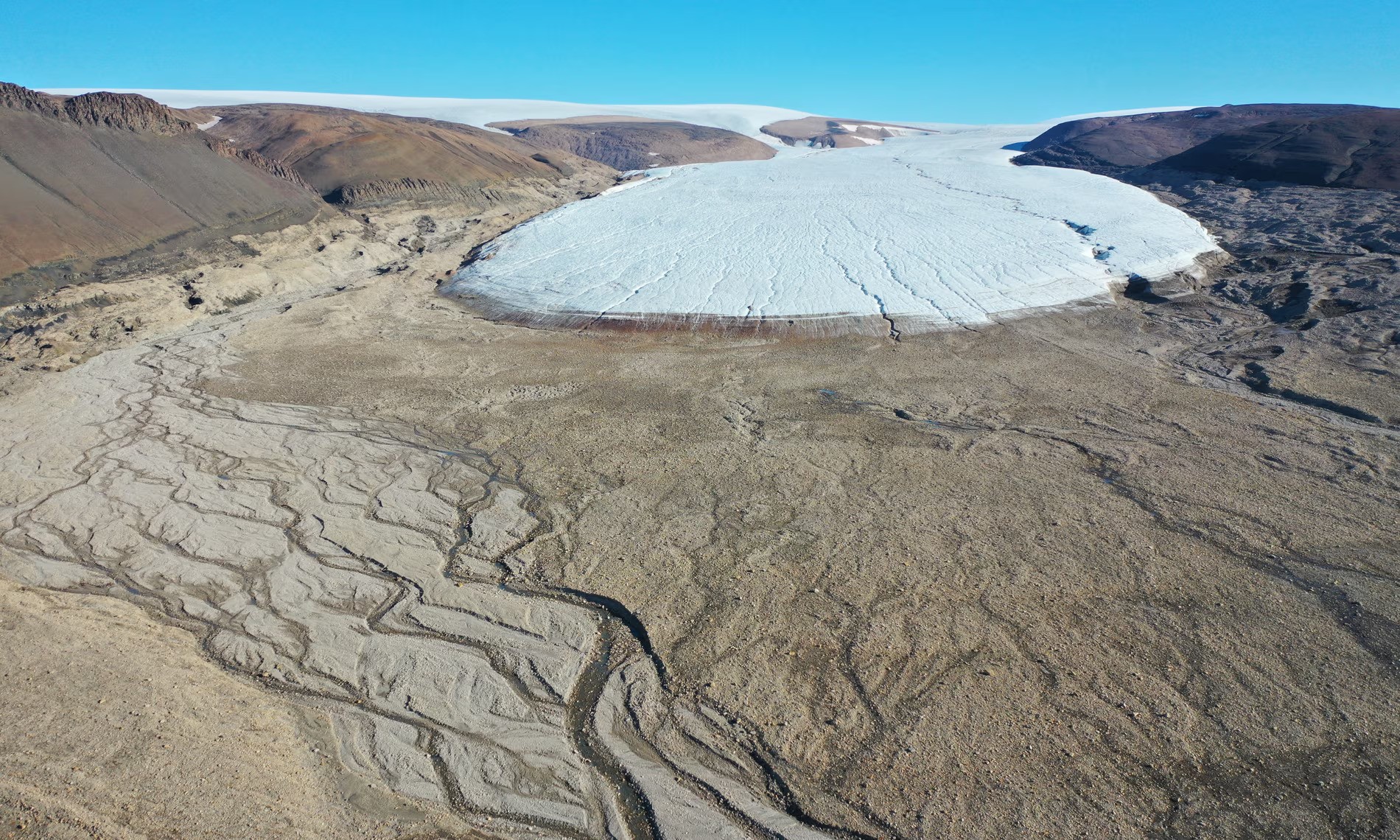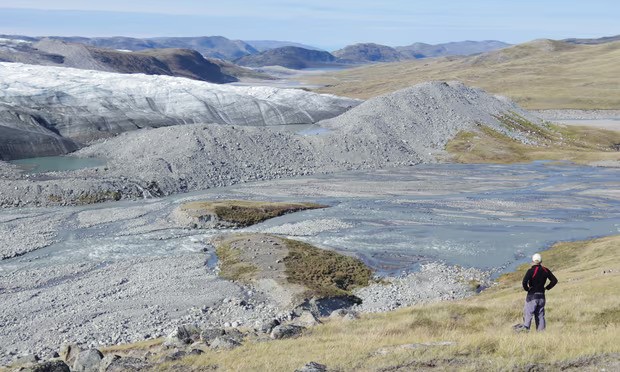Climate Experts Express Concern About Flourishing Plant Life On Greenland Ice Sheet
Climate experts express concern about flourishing plant life on Greenland ice sheet. A study published on Tuesday reveals that the area of ice loss in Greenland over the past thirty years is approximately 36 times larger than New York City.
Author:Rhyley CarneyReviewer:Paula M. GrahamFeb 13, 20249.6K Shares176.2K Views

Climate experts express concern about flourishing plant life on Greenland ice sheet. A study published on Tuesday reveals that the area of ice loss in Greenland over the past thirty years is approximately 36 times larger than New York City. This vast expanse, once covered in ice and snow, is rapidly transitioning into wetlands and shrubbery.
Through satellite imagery analysis, researchers discovered a doubling of vegetation in Greenland from the mid-1980s to the mid-2010s. What was once icy terrain has now become barren rock, wetlands, or shrub-covered areas. Wetlands specifically have quadrupled during this timeframe.
The study reports a loss of 28,707 square kilometers (around 11,000 square miles) of ice in Greenland, emphasizing the potential cascading impacts on climate change and sea level rise. These findings underscore the urgent need for action to mitigate the consequences of Greenland's changing landscape.
Rising air temperatures have triggered ice loss in Greenland, leading to higher land temperatures. This, in turn, has thawed the permafrost - a frozen layer beneath the Earth's surface common in the Arctic - releasing carbon dioxide and methane, potent greenhouse gases that further contribute to global warming. The melting permafrost not only intensifies climate change but also destabilizes the land, posing risks to infrastructure and buildings.
"We have seen signs that the loss of ice is triggering other reactions which will result in further loss of ice and further 'greening' of Greenland, where shrinking ice exposes bare rock that is then colonized by tundra and eventually shrub," one of the report's authors, Jonathan Carrivick, said in a press release. "At the same time, water released from the melting ice is moving sediment and silt, and that eventually forms wetlands and fenlands."
The ice loss is setting off a feedback loop. Normally, snow and ice reflect the sun's energy, helping to regulate Earth's temperature. However, with the decline of ice, these areas absorb more solar energy, leading to higher land surface temperatures. This, in turn, accelerates the melting process and triggers additional negative consequences.
Increased ice melt also contributes to higher water levels in lakes, where water absorbs more heat compared to snow. This phenomenon leads to elevated land surface temperatures. Since the 1970s, Greenland has experienced warming at a rate double the global average. Experts caution that future temperature extremes are probable.
The majority of the ice and glaciers that cover Greenland, the largest island in the world, are there. Approximately 57,000 individuals inhabit the country, which holds autonomous status within the Kingdom of Denmark. A significant portion of the population consists of indigenous peoples who heavily rely on natural ecosystems for sustenance.
According to Michael Grimes, the lead author of the study, the influx of sediments and nutrients into coastal waters poses a particularly significant challenge for indigenous communities dependent on fishing, as well as for hunters residing in other regions of the island.
“„These changes are critical, particularly for the indigenous populations whose traditional subsistence hunting practices rely on the stability of these delicate ecosystems. Moreover, the loss of ice mass in Greenland is a substantial contributor to global sea level rise, a trend that poses significant challenges both now and in the future.- Michael Grimes

Rhyley Carney
Author

Paula M. Graham
Reviewer
Latest Articles
Popular Articles
